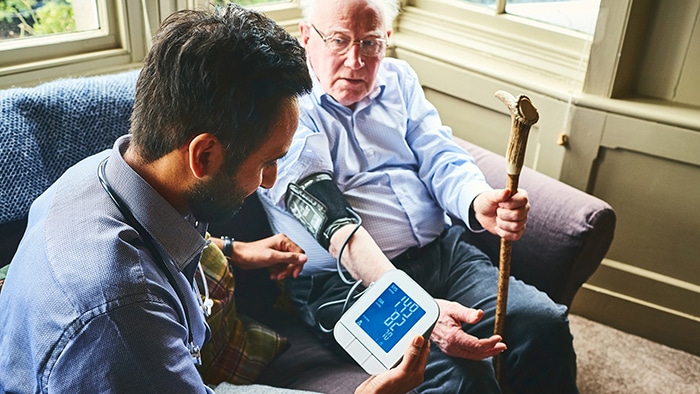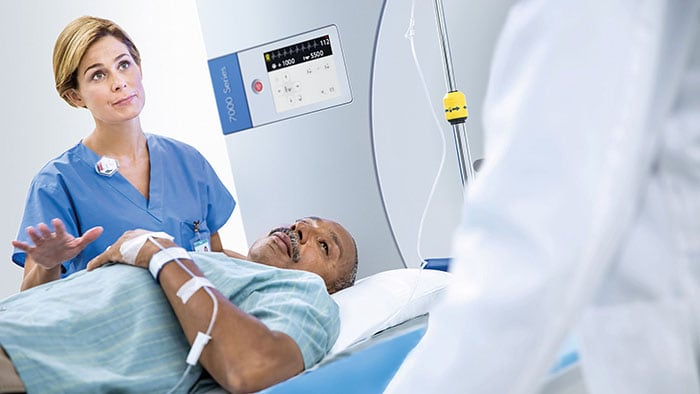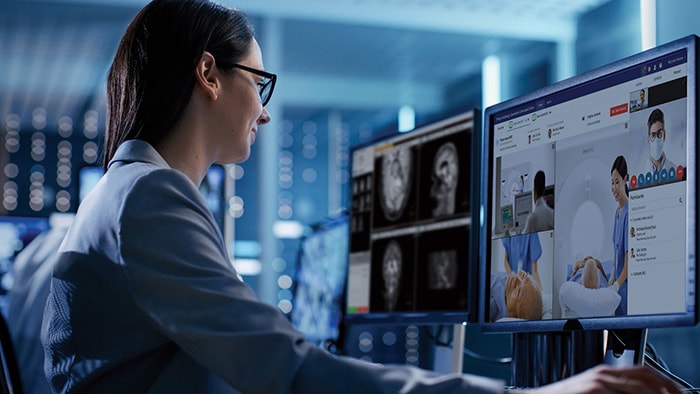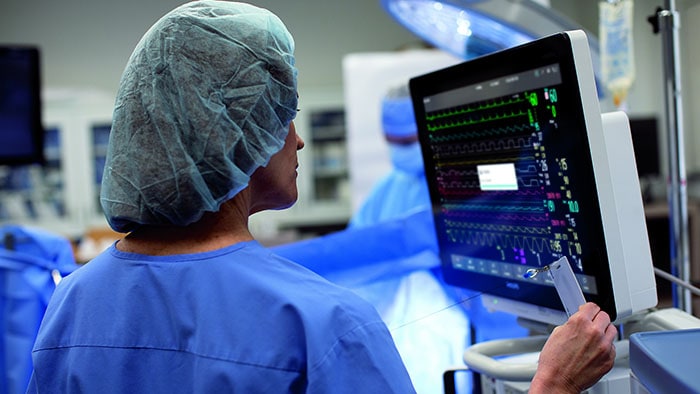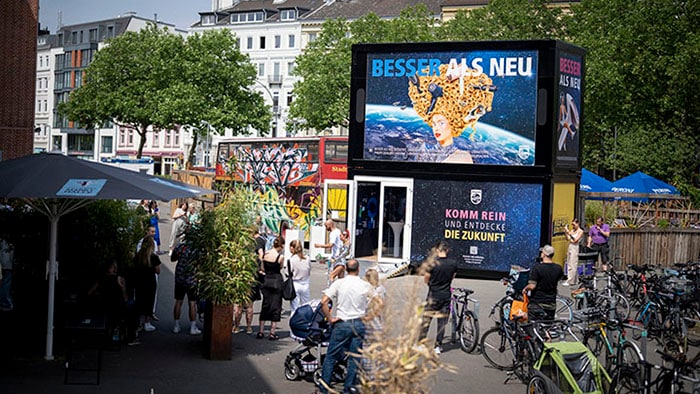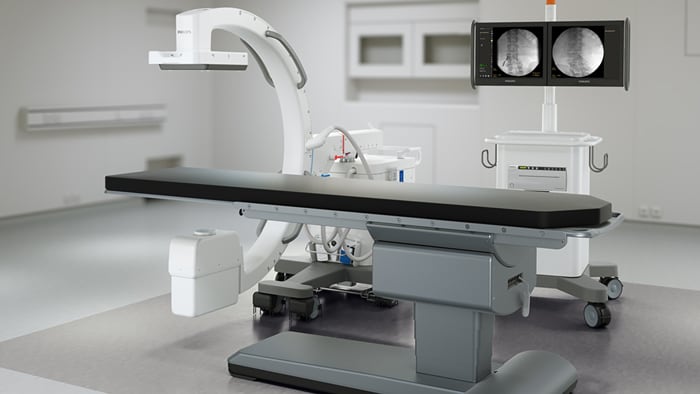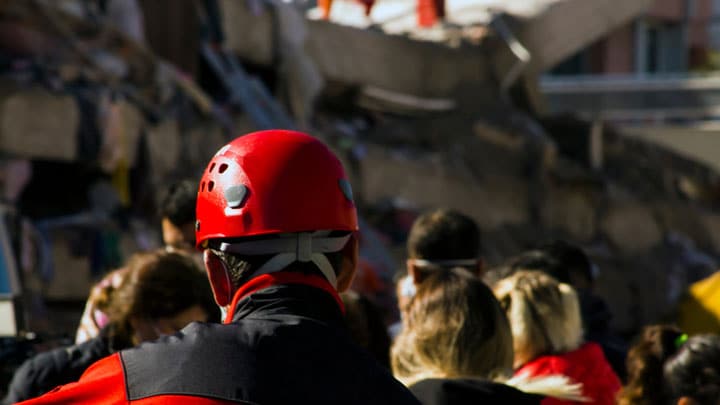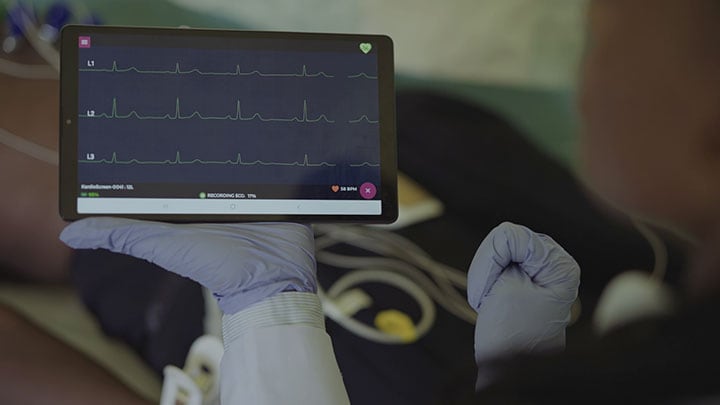Sep 27, 2017
Pedal it out to bring Kenyan’s heart beat back
Nairobi, Kenya - In commemoration of Heart Awareness Month, and World Heart Day, Philips East Africa Limited (“Philips”) in collaboration with the Kenya Red Cross is launching its Back to Rhythm campaign aimed at creating public awareness around cardiac health in Kenya and increasing the chances of survival of victims of SCA. The campaign will take the form of multiple stakeholder engagements to raise awareness on good heart health and use the power of the public to raise awareness and motivate exercise and lifestyle changes leading to Philips funding AED’s to public spaces in Kenya.
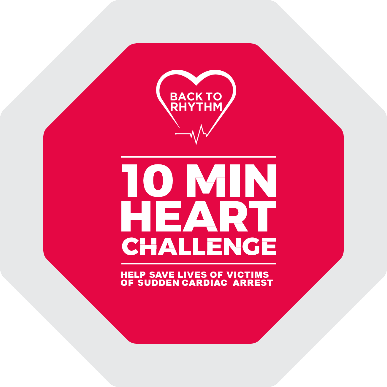
10MinHeartChallenge to citizens of Nairobi An important element of the campaign is the #10MinHeartChallenge extended to the residents of Nairobi to ride bikes placed at a strategic location outside of the National Archives Building in the Nairobi CBD – the challenge is to pedal and achieve the required kilometers for Philips to provide up to a maximum of 10 AED’s to the Kenya Red Cross.
The 10MinHeartChallenge kick-off on Wednesday, 27 September 2017, and will run through Thursday, 28 September 2017. For every 152 kilometers biked (individuals are challenged to bike for 10 minutes) – Philips will provide one AED to the Kenya Red Cross, and the Kenya Red Cross will in turn identify and place the AED’s in public spaces throughout the Nairobi CBD. A report by the Kenyan Ministry of Health indicates that NCDs including cardiovascular diseases (CVD’s) are a major public health concern with significant social and economic implications in terms of healthcare -needs, lost productivity and premature death. NCDs contribute to over 50% of inpatient admissions and 40% of hospital mortality causing substantial financial burden and pushing individuals, households and communities into poverty as well as slowing down economic progress. The disease burden caused by CVDs in particular, is further fueled by adoption of unhealthy lifestyles and eating habits. In fact, the incidence of CVD is fast shifting to the youth; a trend that’s specifically prevalent in the capital city of Nairobi and underserved urban communities where fast food and sedentary lifestyles are an increasing reality. Raising awareness on the growing incidence of CVD; especially SCA and reinforcing the need for a healthy lifestyle and healthy diet are a core component of the Back to Rhythm campaign, which will continue with several different informative and educative programmes in the coming months. SCA occurs when the electrical system of the heart becomes chaotic, causing it to stop beating effectively. Lacking proper blood flow, the person becomes unresponsive and stops breathing normally. What many don’t know is that cardio pulmonary resuscitation (CPR) alone cannot help in the case of a SCA as it cannot restore a normal heart rhythm. A shock from a defibrillator is the most effective way to restore the heart’s normal pumping rhythm. A person’s best chance of survival is to receive a defibrillator shock within five minutes of collapse with chances of survival reducing by 10 per cent every minute; after 10 minutes, few attempts at resuscitation are successful. A defibrillator will not save every person who experiences SCA, but more lives could be saved if those affected were reached more quickly. A quick response makes a real difference. What is an automated external defibrillators (AEDs)? Philips is the worldwide leader in automated external defibrillators (AEDs), having shipped over one and a half million AEDs to customers across the world. Philips manufactures AED’s, used by healthcare professionals every day; as well as AED’s designed for anyone to use, having the same ability to restart a heart as well as AEDs designed for healthcare professionals.
What is Sudden Cardiac Arrest (SCA)?
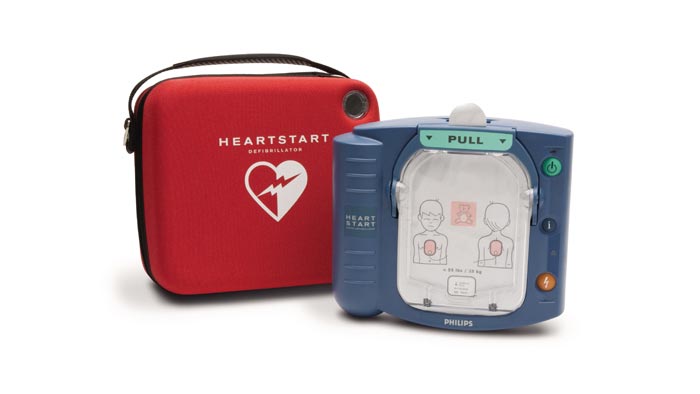
The Philips HeartStart defibrillators (that will be given to the Kenya Red Cross) have a simple design, portable and guide the user through the resuscitation process using a clear, calm voice and audible instructions that acts as a personal coach. The user of a Philips HeartStart defibrillator does not need to recognize or interpret heart rhythms, the AED does so automatically, making the treatment option safe and easy to use, with minimal training.
“High fat and sugar diets, rapid economic growth, long office hours, lack of exercise and urbanization are responsible for the increase in cardiovascular disease across Africa including Kenya. While social and governmental steps are being made to reduce some of the factors causing heart disease, the reality is that the average Kenyan is at risk of contracting coronary heart disease. The Philips Back to Rhythm campaign is intended to educate the public on cardiac health especially Sudden Cardiac Arrest; how to recognize the symptoms, and how to try and save the lives of others in the unfortunate event of a Sudden Cardiac Arrest” says Jasper Westerink, CEO, Philips Africa. “Part of the campaign includes providing training on the use of AEDs and basic life support (BLS) level CPR classes to the general public and first responders including Boda Boda riders. At Philips we believe there’s always a way to make life better; through the use of technology and ongoing education and training, we can help increase access to quality healthcare and improve health outcomes for all.” concludes Mr. Westerink. The Association of Boda Boda riders will receive CPR and AED training on 28 September 2017, at Kawangware and Philips will also provide a Philips HeartStart defibrillator to the Association. Over 100 Boda Boda riders, who are often the first point of response and have become integral in emergency situations in the city of Nairobi, will be equipped for SCA situations - ultimately giving them the confidence to lead the way in saving lives. Kenyan pop-group Elani, has also committed their support to the campaign and will be unveiling a specially created soundtrack and performance at the kick-off of the #10MinHeartChallenge at the Nairobi CBD (area outside the National Archives). Performance timing: 14.00 hrs on 27 September 2017. Follow the progress of the campaign on Facebook | Twitter : #BacktoRhythm #10MINHeartChallenge.
[1] source
About Royal Philips
Royal Philips (NYSE: PHG, AEX: PHIA) is a leading health technology company focused on improving people's health and enabling better outcomes across the health continuum from healthy living and prevention, to diagnosis, treatment and home care. Philips leverages advanced technology and deep clinical and consumer insights to deliver integrated solutions. Headquartered in the Netherlands, the company is a leader in diagnostic imaging, image-guided therapy, patient monitoring and health informatics, as well as in consumer health and home care. Philips' health technology portfolio generated 2016 sales of EUR 17.4 billion and employs approximately 70,000 employees with sales and services in more than 100 countries. News about Philips can be found at www.philips.com/newscenter.
Topics
Contacts

Radhika Choksey Head of Brand, Communications and Digital Philips Africa Tel: +31 62525 9000
Email: radhika.choksey@philips.com
